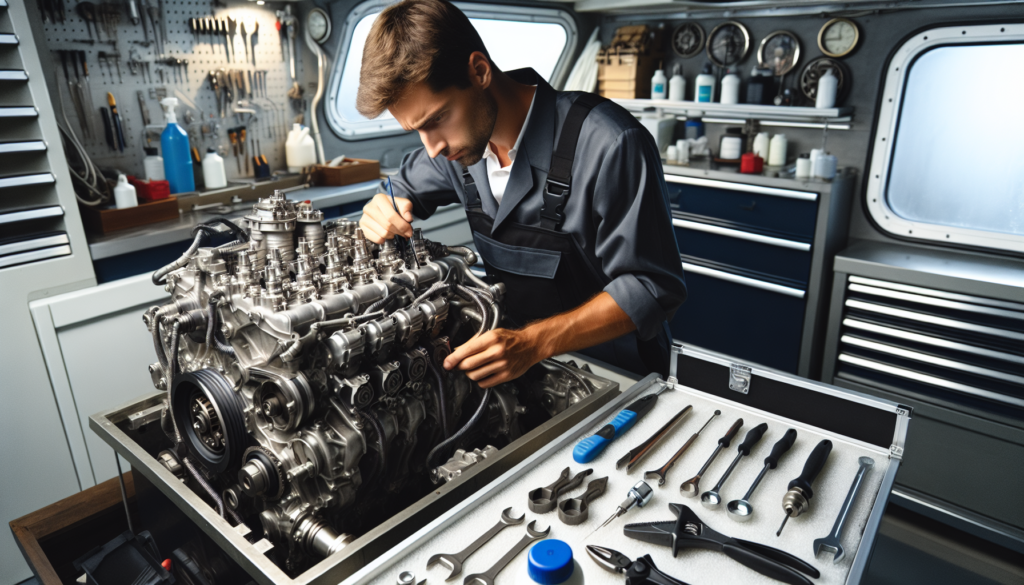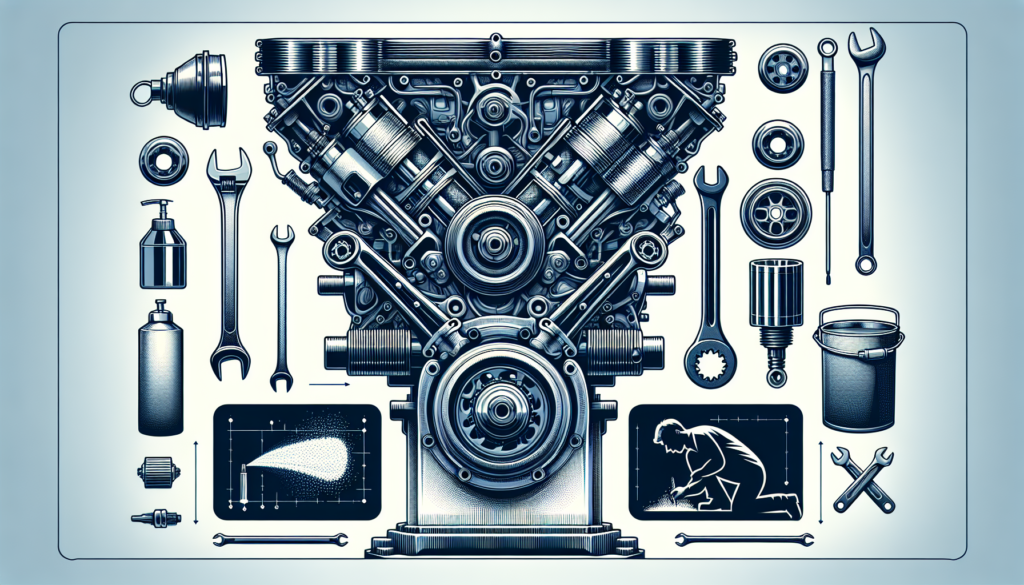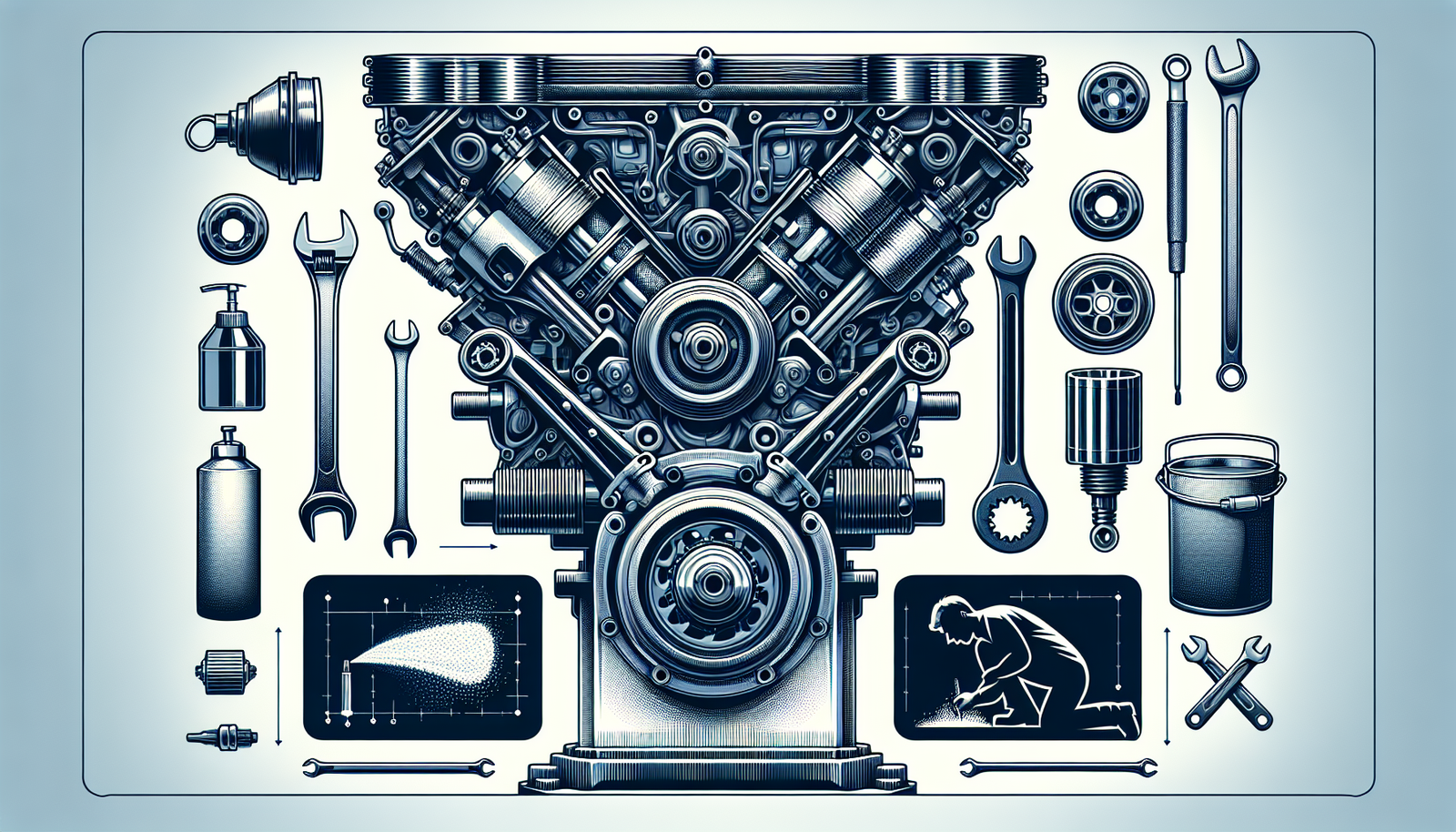Are you a boating enthusiast or a fresh boat owner seeking to navigate the waters safely? If yes, then maintaining your boat engine lies at the heart of the matter. The article, ‘Essential Boat Engine Maintenance For Safe Operation,’ arms you with comprehensive knowledge about necessary boat engine check-ups and maintenance procedures for secure sailing. It provides you a step by step guide, peppered with expert tips, to ensure your boat engine operates in optimal condition and you enjoy a safe and trouble-free ride on the water.
Understanding Your Boat’s Engine
Knowing your way around your boat’s engine is some of the most practical knowledge you can possess as a boat owner. It’s not all about becoming a marine mechanic overnight. Rather, it’s about understanding the basic aspects of your boat’s engine to ensure its optimal performance, troubleshoot minor issues, and ensure safety during your seafaring adventures.
Importance of Engine Knowledge
Being clued-up about your boat’s engine does not only spare you unnecessary costs, but it also provides peace of mind. You wouldn’t want to be stranded in the middle of the water because of an issue that you could have easily identified or even fixed yourself. Additionally, a solid understanding of your boat’s engine will help you maintain it in top condition, ultimately extending the life of your vessel.
Types of Boat Engines
When it comes to boat engines, there are primarily two types – inboard engines and outboard engines. Inboard engines are often similar to car engines and are located inside the boat. On the other hand, outboard engines are situated on the outside of the boat, generally in the rear. They are self-contained units including the engine, gearbox, and propeller.
Basic Parts of a Boat Engine
While varying in design and complexity, all boat engines comprise certain basic parts. The engine block, being the core component, houses cylinders where fuel combustion happens. Attached to the engine block, you’ll find the cylinder head, home to the valve train components, spark plugs, and pistons. The exhaust manifold disposes of exhaust gases, while the carburetor mixes air and fuel. Other important parts include the alternator for charging the battery, the oil filter to keep engine oil clean, and the water pump to cool down the engine.
Routine Inspection of Engine
Keeping a watchful eye on your boat’s engine is crucial in maintaining its health. Regular inspections can unveil minor issues before they snowball into a major headache.
Frequency of Inspection
An engine inspection is best performed before you hit the water. Performing a comprehensive inspection at least once a year is also advisable, more frequently if you’re a regular sailor. If possible, consult a professional for these yearly inspections.
What to Look Out For during Inspection
During an inspection, ensure that there are no visible leaks, the belts and hoses are in good shape, and the fluid levels are correct. Additionally, look out for any loose or corroded connections. Don’t forget to check the oil for signs of contamination and the battery for any signs of damage or corrosion.

Changing the Engine Oil
Engine oil lubricates, cools, and cleans the engine. It is, therefore, imperative to change it regularly to keep the engine in good health.
When to Change Engine Oil
The frequency of oil changes depends on the engine type and the manufacturer’s recommendation. Generally, an oil change after every 100 operating hours, or at least once a year, is suggested.
Choosing the Right Engine Oil
Choosing the right oil can significantly influence your engine’s performance. It is advisable to use marine engine oil as it is specifically crafted to resist the harsh marine conditions. The oil’s viscosity grade should comply with the manufacturer’s recommendation.
Process of Changing Engine Oil
Drain the old oil while the engine is warm, as it flows better. After draining, replace the oil filter and then refill with the new oil. Maintain the oil level within the range indicated on the dipstick.
Cooling System Maintenance
The cooling system prevents the boat’s engine from overheating. Regular maintenance is key to keep it properly functioning.
Regular Flushing of the System
Pour fresh water into the system to flush out salt, dirt, and other sediments. This should be performed after every trip if you’re boating in salty or dirty waters.
Checking for Damages and Leaks
Regularly inspect the system for leaks, cracks, or other damages. Pay special attention to the hoses, connections, and the water pump. Promptly attend to any issues to prevent the engine from running hot.
Changing Antifreeze Solutions
Antifreeze prevents the engine from freezing in cold temperatures. Be sure to replace the antifreeze solution as per the manufacturer’s recommendations to maintain the system’s efficiency.

Fuel System Care
Fuel is the lifeblood of your boat’s engine. Proper fuel system care is essential to smooth operations.
Preventing Fuel Contamination
One frequent offender of fuel contamination is condensation that builds up in the fuel tank. To avoid this, aim to keep your fuel tank as full as possible, especially during storage.
Periodic Fuel Filter Change
A clean fuel filter keeps the fuel clean by trapping contaminants. Change the fuel filter periodically to ensure a steady, clean supply of fuel to the engine.
Checking for Damages in the Fuel Lines
Regularly inspect the fuel lines for damages and leaks. Resolving these issues immediately will help safeguard your engine from potential harm and performance issues.
Battery Maintenance and Inspection
A healthy battery ensures a reliable power supply to your boat’s engine. Regular inspection and maintenance are necessary to keep it in top condition.
Checking Voltage Levels
Keep your battery fully charged to prolong its lifespan. Regularly check its voltage levels to ensure it is within the optimal range.
Cleanliness and Tightness of Connections
Ensure that battery terminals and cables are clean and tightly secured. Loose or corroded connections can impact the battery’s performance and its ability to hold a charge.
Detecting Corrosion and Prevention
Check for corrosion on the terminals and connections. Regularly cleaning and applying a thin layer of petroleum jelly on the terminals can help prevent corrosion.
Propeller Maintenance
A well-maintained propeller ensures optimal boat performance and fuel efficiency.
Regular Propeller Check-Up
Regularly inspect the propeller for any damages or debris entanglement. On finding any debris, carefully remove it to avoid causing further damage.
Identifying and Repairing Damages
Examine your propeller for any nicks, dents, or other damages. If you encounter any damage, consult a professional for repairs or possible replacement.
Importance of a Well-balanced Propeller
A well-balanced propeller significantly reduces vibration and wear on the engine. If your propeller is imbalanced, it is best to have it balanced professionally.
Belt and Hose Maintenance
Belts and hoses play a crucial role in your boat’s engine operation. Their maintenance shouldn’t be overlooked.
Regular Inspection for Wear and Tear
Regularly check the belts and hoses for any signs of wear and tear, such as cracking, hardening, or brittleness. Also, look out for any loose connections.
Proper Belt and Hose Replacement
Replace worn-out belts and hoses promptly to prevent possible breakdowns. Always use high-quality replacements that meet the manufacturer’s specifications.
Ensuring Correct Tension
Ensure that belts are correctly tensioned. An over-tightened belt can cause premature wear, while a loose belt may slip or fall off.
Maintaining the Spark Plugs
Spark plugs ignite the fuel-air mixture in the engine. Thus, their proper maintenance is vital for the engine’s efficient operation.
When to Change Spark Plugs
The frequency of spark plug replacement depends on the engine type and usage. Check your manufacturer’s guidelines for the recommended interval.
Cleaning Spark Plugs
regularly clean your spark plugs with a wire brush and cleaning solvent. This routine helps maintain their functionality and longevity.
Checking Spark Plug Gaps
Ensure that the spark plug gap is set according to the manufacturer’s specifications. A gauge can be used to measure and adjust the gap correctly.
Ventilation System Check
A functioning ventilation system is vital to prevent the build-up of harmful vapors in the engine room.
Significance of Proper Ventilation
Proper ventilation ensures the continuous flow of fresh air to the engine room, minimizing the risk of fumes causing any damage. It also helps to keep the engine cooler during operation.
Identifying Ventilation Issues
Regularly inspect the ventilation system for blockages or damages. Any issues in the ventilation system can lead to a build-up of damaging elements like moisture and heat.
Maintaining the Ventilation System
Regular maintenance involves checking the quality of the air ducts and ensuring they are free of any blockages. Replace any worn-out parts promptly to keep the system functioning efficiently.


[…] the murky waters of boat engine oil changes and disposal can be a daunting task if you’re not equipped with the right knowledge. Luckily, […]
[…] you are a boat enthusiast or owner, then the health of your engine is of utmost importance. “Essential Boat Engine Maintenance for Smooth Operation in Rough Waters” is the perfect guide to keep your boat engine in top-notch condition. This […]